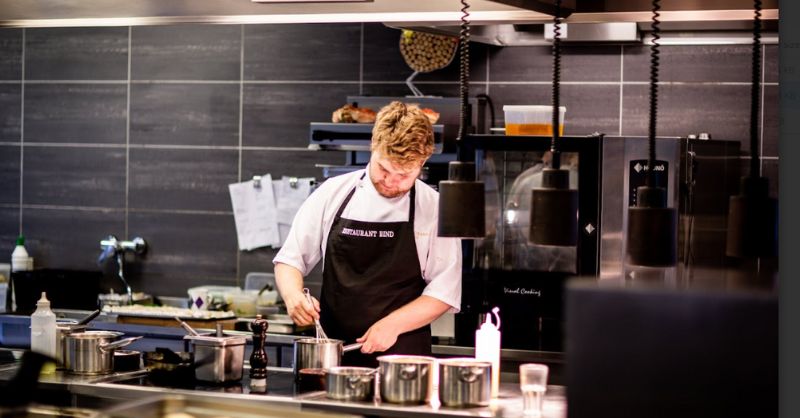
The culinary landscape is constantly evolving, with global cuisine becoming increasingly prominent. French culinary schools, renowned for their mastery of traditional French cooking, are adapting to embrace this shift.
This article looks at how these respected schools are bringing in international flavors and methods. They are preparing new chefs for a diverse and evolving culinary scene.
A Blend of Tradition and Innovation
French culinary schools have a rich history. They are known for their rigorous training in classic French cooking techniques. However, the rise of global cuisine has prompted these schools to expand their horizons. They are blending their deep-rooted traditions with innovative approaches to international cuisines. This fusion is not just about adding new recipes to the curriculum. It’s about integrating a global perspective into the very heart of culinary education.
Curriculum Expansion
French culinary schools are experiencing a significant transformation, broadening their curriculums to encompass a diverse array of global cuisines. Students now have the opportunity to explore and master culinary techniques from Asia, the Middle East, Latin America, and beyond. This broad exposure is vital. It equips students with a rich palette of flavors and techniques from around the world. Such training is essential for creating versatile chefs ready to excel in the diverse and ever-changing culinary landscape.
Faculty Diversity
The faculty at a French culinary institute plays a pivotal role in this transformation. These institutes are now bringing on board chefs who specialize in various international cuisines. These culinary experts carry with them a treasure trove of knowledge about diverse cooking traditions and methods. Their involvement in teaching gives students a genuine taste of global cuisine. But it’s more than just learning new skills. The varied backgrounds of these chefs create a rich environment where cultural exchange is as cherished as the pursuit of culinary perfection.
Practical Learning Experiences
Practical experience is a cornerstone of culinary education. French culinary schools are now offering more internships and study-abroad programs focused on global cuisine. These experiences allow students to immerse themselves in different culinary cultures. They learn firsthand about the ingredients, techniques, and traditions that define various global cuisines. This hands-on approach is vital. It helps students understand the nuances of different culinary styles beyond the classroom.
Emphasis on Cultural Understanding
In French culinary schools, there’s a growing focus on the cultural aspects of cuisine, not just the cooking techniques. These institutions are teaching students about the history, traditions, and societal influences of various cuisines. This comprehensive approach ensures that graduates are more than just proficient chefs; they become culturally aware culinary experts. Understanding the story behind each dish is as crucial as knowing how to prepare it, fostering chefs who respect and celebrate culinary diversity.
Sustainable and Ethical Practices
The scope of global cuisine extends beyond taste and technique; it encompasses a deep respect for the global food system. French culinary schools are increasingly highlighting sustainability and ethical practices in their teachings. Students learn about the significance of sourcing ingredients responsibly, minimizing food waste, and considering the environmental effects of their cooking practices. This education is pivotal in shaping chefs who are not only talented in the kitchen but also conscientious about their role and impact within the global food ecosystem.
Technology and Innovation
The culinary world is increasingly influenced by technology and innovation. French culinary schools are integrating these elements into their training. From modern cooking techniques to the use of cutting-edge kitchen equipment, students are exposed to the technological advancements shaping the culinary industry. This exposure ensures that graduates are equipped to work in modern, high-tech kitchen environments.
Nurturing Creativity and Innovation
In the realm of global cuisine, creativity is key. French culinary schools are fostering an environment where students can experiment and innovate. This approach encourages them to blend traditional French techniques with global flavors, creating unique and exciting dishes. Instructors guide students in exploring their culinary creativity, ensuring that they can think outside the box. This aspect of education is crucial. It prepares students to be leaders in a culinary world that values originality and innovation.
Language and Communication Skills
Communication is vital in the global culinary scene. French culinary schools are now placing a greater emphasis on language skills. Learning languages like English, Spanish, or Mandarin is becoming part of the curriculum. This linguistic training is essential. It ensures that graduates can communicate effectively in diverse kitchen environments. It also opens up more opportunities for them in the international culinary job market.
Conclusion
The transformation of French culinary schools in response to the rise of global cuisine is a testament to their commitment to excellence and relevance. By integrating global flavors, techniques, and perspectives, these schools are preparing chefs who are versatile, innovative, and culturally aware. The future of the culinary world is bright, with these institutions leading the way in educating chefs who can navigate and excel in a diverse and dynamic culinary landscape. The journey of a chef trained in a French culinary institute is not just about mastering recipes. It’s about embracing a world of flavors, cultures, and possibilities.
All Category
 All Courses
All Courses Personal Development
Personal Development Employability
Employability Business
Business Management
Management Sports, Nutrition & Fitness
Sports, Nutrition & Fitness Fast Track
Fast Track Microsoft Office
Microsoft Office Marketing
Marketing Health & Safety
Health & Safety Nursing & Care
Nursing & Care Design
Design Technology
Technology HR and Leadership
HR and Leadership Software
Software Ex Deal
Ex Deal Language
Language Counselling and Therapy
Counselling and Therapy Accounting & Finance
Accounting & Finance Teaching and Education
Teaching and Education QLS Endorsed
QLS Endorsed Psychology
Psychology Teacher Training
Teacher Training IT
IT Excel
Excel Lifestyle
Lifestyle Child Care
Child Care Health and Care
Health and Care Maintenance Management
Maintenance Management Physical & Mental Health
Physical & Mental Health Makeup and Beauty
Makeup and Beauty Photography
Photography Access
Access Powerpoint
Powerpoint Word
Word Outlook
Outlook IT & Software
IT & Software Digital Marketing
Digital Marketing Arts & Crafts
Arts & Crafts Animal Care
Animal Care Development
Development Bundles
Bundles Cooking
Cooking Travel and Tourism
Travel and Tourism Mathematics
Mathematics Networking & Design
Networking & Design Project
Project Customer Service
Customer Service Health & Fitness
Health & Fitness Coaching
Coaching Infopath
Infopath Business,Personal Development
Business,Personal Development Law
Law Project management
Project management Office Skills
Office Skills Pharmacy
Pharmacy Photoshop
Photoshop International Relations
International Relations Autism
Autism Philosophy
Philosophy Teaching & Special Education
Teaching & Special Education Animal
Animal Leadership & Management
Leadership & Management






